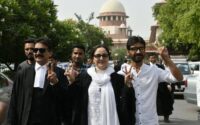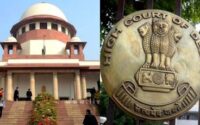IS DENIAL OF HUMAN RIGHTS TO TRANSGENDER COMMUNITY DURING LOCK DOWN REASONABLE?
This article is written by Bhavya Verma of JEMTEC, School of Law, Greater Noida and curated by Dheepika R of ICFAI Law School, Hyderabad.
The World Health Organization (WHO) on March 11, 2020, announced that an outbreak of the viral disease COVID-19–first detected in Wuhan, China in December 2019–had reached the point of a global pandemic. Citing concerns about “the alarming rates of spread and intensity”, the WHO called on governments to take immediate and decisive measures to stop the virus from spreading.
The scale and severity of the COVID-19 pandemic clearly rose to the level of a threat to public health which might justify restrictions on certain rights, such as those resulting from the imposition of quarantine or isolation restricting freedom of movement. At the same time, careful attention to human rights such as non-discrimination and principles of human rights such as transparency and respect for human dignity can foster an effective response in the midst of the turmoil and disruption that inevitably leads to times of crisis and limits the harms that may result from imposing overly broad measures that do not meet the criteria mentioned above.
Under the International Covenant on Economic, Social and Cultural Rights, adopted by most nations, everyone has the right to “the highest attainable standard of physical and mental health”. Governments are obliged to take appropriate measures to “prevent, treat and control of epidemic, endemic, occupational and other diseases”.
In September 2018 the Supreme Court of India legalized homosexuality in India. The five-judge bench declared Section 377 of the Indian Penal Code to be unconstitutional and held that human sexuality cannot be limited to a binary.
The judgment heralded a new dawn for personal freedom and was a major LGBT community victory. They possessed the same degree of dignity as other people. Yet the COVID-19 pandemic affected the LGBT community significantly.
They struggle with lack of resources, stigma, and poor mental and physical health. The LGBT’s are already a vulnerable group and the pandemic has made their lives a little harder. International Transgender Rights groups are arguing that they have been denied healthcare due to global coronavirus lockdown restrictions.
Two main steps to defeat COVID-19 are social distancing and the use of personal protection. But, since most transgender people are poor and live in small buildings, these protective steps are not enforced.
Those who beg for their livelihood, or do sex work, are the worst affected because they have no income now. As a result, these areas are likely to be a hotbed for COVID-19 as they live in small houses in unhygienic conditions.
During this lockdown, a transgender staying with an unsupportive family deal with stress, anxiety, and trauma especially those who have recently undergone surgery. Because of the lack of social acceptance for ages, they are likely to fall into the clutches of depression and so this pandemic has intensified their plight.
Higher levels of anxiety, depression, and poor mental wellbeing have been related to habits adverse to their physical health including increased use of abuse of drugs, smoking, alcohol, self-harm, eating disorders, and suicidal thoughts. Sometimes they are exposed to verbal as well as physical violence due to lack of understanding and acceptance even by family members.
The LGBT Foundation has received numerous complaints from trans-people that they are denied access to prescribed hormone injections, although the guidelines on essential services from the World Health Organization and the European Commission include medicines for the LGBT.
A lot of NGO’s help them cope with this crisis. The Social Justice and Empowerment Ministry (MSJE) is working to empower the marginalized communities. On April 8, the Karnataka Government announced that transgender people would get it upfront for two months, and they would also be provided with free medicines.
Four transgender people in Lakhimpur district also received free rations from the Assam Government. Chhattisgarh is the only State with a Transgender Welfare Board that works.
Hence, the ability to adequate health care is a critically important universal human right and yet is being denied to transgender people worldwide. During times like today, with the COVID-19 pandemic, the implications of the right’s rejection are far-reaching. Discrimination leads to the systematic exclusion of the healthcare of transgender communities in India. Times of crisis is a test of the tolerance and acceptance of difference within society. While the rest of the world is battling the COVID-19 outbreak, the transgender community, particularly in India, continue to struggle through the layers of oppression and centuries of a separate quarantine placed on the outside of the conventional binary because of their gender identity. The need for the hour is to crack the stigma attached to the LGBT community and in this hour of crisis give them a helping hand.


